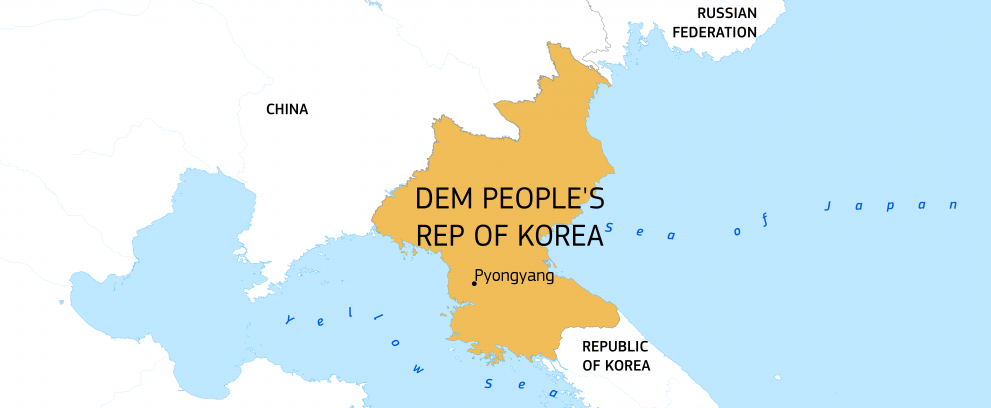Introduction
North Korea suffers from recurrent natural hazards, ranging from extended droughts and severe flooding to occasional typhoons.
The border closures and strict quarantine procedures following the COVID-19 outbreak have resulted in a severe lack of verifiable data on the humanitarian situation inside the isolated country.
Indications suggest an overall deterioration of the situation with inadequate imports of essential humanitarian supplies, including lifesaving medicines and equipment.
What are the needs?
International sanctions launched against North Korea in early 2013 have made it increasingly difficult to make international bank transfers to the country, which affects the functioning of humanitarian agencies.
Data from 2021 report a fragile food and nutrition situation in North Korea subjected to deterioration in case of natural hazards and other shocks.
Due to the access challenges, there are no reliable data on the current humanitarian situation in the country.

How are we helping?
The EU has responded to humanitarian needs in North Korea since 1995, providing more than €136.2 million in humanitarian aid funding to support over 130 projects.
EU humanitarian aid focuses on food assistance, the improvement of health services, and access to clean water and sanitation to the most vulnerable.
In 2021, the EU allocated €500,000 to strengthen the capacities of local responders and institutions to respond to future hazards, as well as to mitigate the impact of natural hazards on agricultural production and livelihoods of people in rural areas.
Since 2020, access restrictions persist and make it impossible for humanitarians to operate. Therefore, no EU humanitarian funding is foreseen for North Korea in 2023.
However, the EU stands ready to enter the country should the authorities reopen its borders to staff and humanitarian supplies and allow for principled humanitarian work.
Previously, following the early seasonal drought that hit the country in early 2019, the EU allocated €55,000 to support the International Federation of the Red Cross in providing essential assistance to the most vulnerable families in the worst-hit eastern province of South Hamgyong.
In August 2018, when the provinces of North and South Hwanghae were struck by large-scale flooding and landslides, the EU provided €100,000 to assist those most affected.
In 2016, the EU offered €300,000 towards life-saving relief items to families affected by devastating flooding that swept across large parts of the northernmost province of North Hamgyong.
In early 2016, continuing its support to the most vulnerable communities, the EU provided €300,000 for an initiative led by the Finnish Red Cross (FRC).
It focused on enhancing the capacity of people in rural areas to respond to future floods and droughts, at both local and national levels. The programme, which ran until November 2017, directly benefitted more than 7,000 people.
Last updated: 01/03/2023

